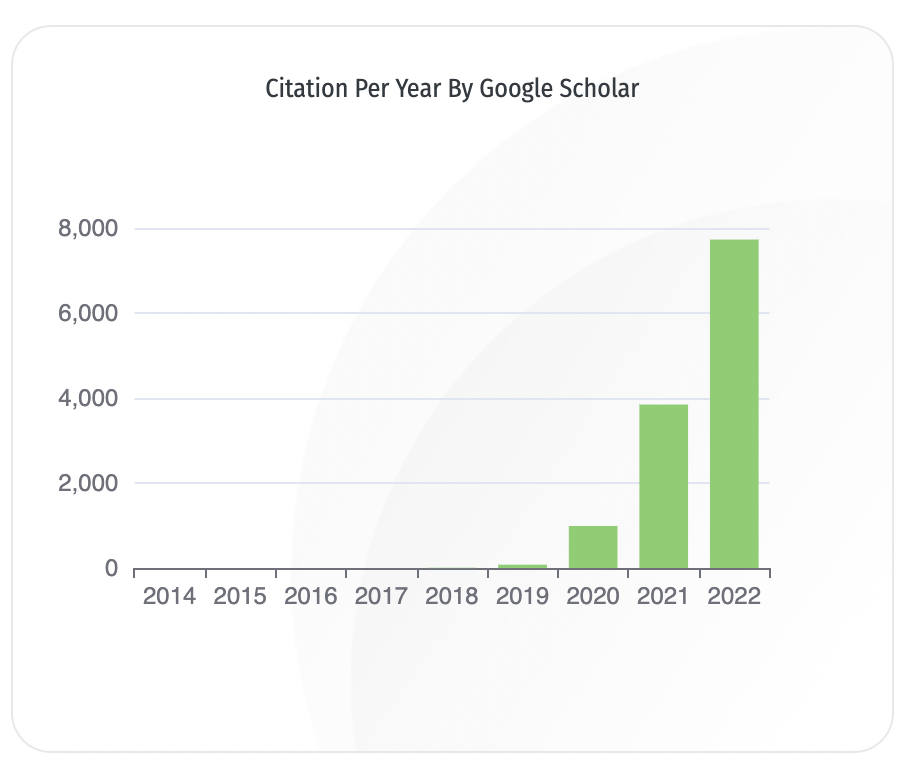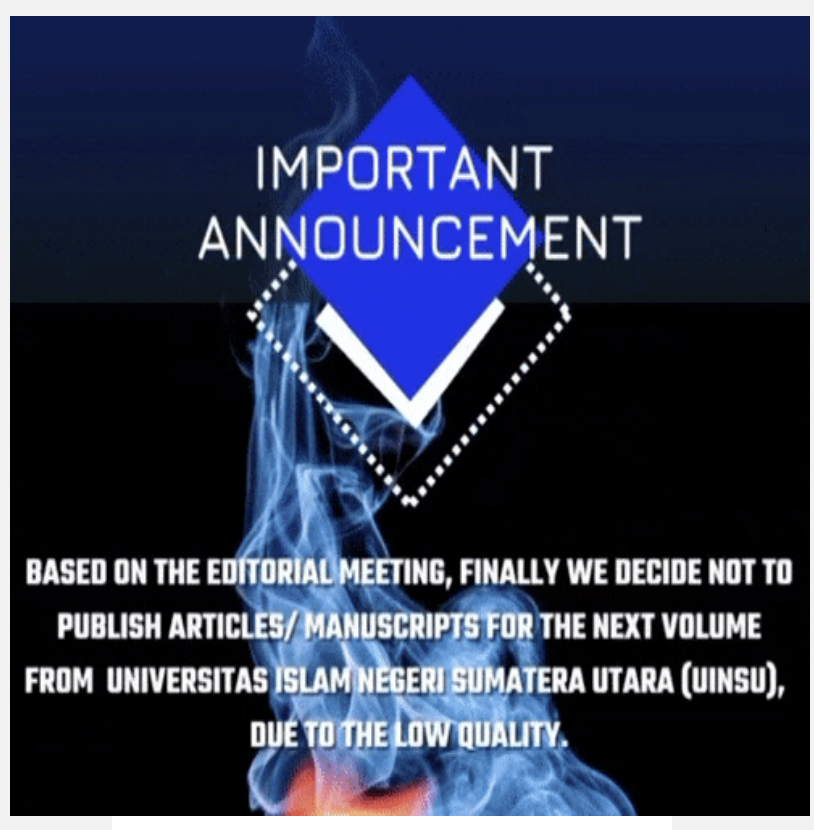Dr. Uli Kozok, University of Hawaii at Manoa
02 Desember 2022
Bandar Klippa is a sleepy little town located on the fields of a former tobacco plantation on the outskirts of Medan in North Sumatra, Indonesia. It is here where a company is operating two academic publishing houses. They publish books, organise conferences, and manage 12 journals. One publishing house has the odd name Budapest International Research and Critics University (BIRCU), and the other has a name that is even stranger: Britain International for Academic Research (BIAR). One of their journals, the Budapest International Research and Critics Institute-Journal (BIRCI), publishes four issues per year since 2017. Volume 5 (3), published in August 2022, includes the staggering amount of 1007 articles comprising over 10,000 pages.
Despite their names, BIRCU and BIAR have nothing to do with the capital of Hungary or with Great Britain. Their journals are also not truly international.The overwhelming majority of articles is published by Indonesians, and the content of almost all articles is related to Indonesia. A very small number of articles is published by scholars mainly from the Democratic Republic of Congo and from Nigeria, but also from some Asian, and other African countries.
The manager of BIRCU and BIAR is Muhammad Ridwan, Ph.D (cand). On his website bircupublishing.com he refers to himself as being affiliated with the “State Islamic University of North Sumatera Indonesia”. However, the Dean (dekan) of the Faculty of Education and Teacher Training of the Islamic State University of North Sumatera Indonesia (UINSU) confirmed on 24/03/2021 that since 2015 Muhammad Ridwan is no longer an instructor at said university. This was once again confirmed on 05/09/2022 in a letter issued by the UINSU Vice Chancellor/President (rektor) to the National Research and Innovation Agency, Ministry of Research and Technology of the Republic (RISTEK-BRIN) in which the University states that M. Ridwan is not employed by the University, and that the University is not involved in his academic journal business. The UINSU President even emphasised that “in case Muhammad Ridwan in his function as a publisher of journals or other academic publications ever violates publication ethics or academic integrity, he should be punished in accord to the existing regulations.” The two letters were issued because M. Ridwan had published a plagiarised paper in an academic journal. The Ministry of Research and Technology of the Republic of Indonesia (Kemenristek) then reported the case to UINSU. However, at that time Muhammad Ridwan was no longer employed at UINSU but continued to use the UINSU affiliation in his paper.
Muhammad Ridwan also once applied to become a translator for UINSU. However, he was not accepted because of his poor command of English.
M. Ridwan then took revenge by placing a logo on each page of his 12 journals with the text “Important Announcement. Based on the editorial meeting, finally we decide [sic] not to publish articles/manuscripts for the next volume from Universitas Islam Negeri Sumatera Utara (UINSU), due to the low quality.”
BIRCU and BIAR show all signs of predatory publishers. They have misleading titles; use fake metrics provided by the infamous bogus impact factor company CiteFactor. They also pretend to be international when in fact they are predominantly national; and they offer “fast track” reviews conducted by 21 reviewers (for over 1000 articles) of which most (if not all) are non-native speakers of English. Many articles look as if they were not peer-reviewed at all, and some are written in almost completely incomprehensible English. One article bears the title “Communication Strategy Fashion Luxury Brand in Increase Brand Experience with among Millennials in the Time of the COVID-19 Pandemic: A Systematic Literature Review”. Even though, the authors have to pay not only a publication fee of between $40 and $140, but also a review fee of $85.
Despite its shady quality, BIRCI (one of the BIRCU journals) managed to become accredited by the Indonesian Department of Education in 2018. However, the accreditation was withdrawn in 2022. Why BIRCI became government accredited is not clear, but it has a very high Google Scholar h-Index of 45. Yet, a high Google Scholar h-Index is not a measurement of quality, but of visibility and influence.
It is a well-known fact that the h-Index can be easily manipulated. This was done in the case of BIRCI journal by uploading fake articles from a non-existent journal with the fictitious name Vocational Student’s Perspective in Literacy Reading (VOSTUVE) to researchgate.net.
As an example I looked at an article published in BIRCI Journal 5 (2), 2022 with the bizarre title Nommensen and Bataknese (The Representation of Apostle). Academically, the article is of no value at all, and it is written in almost completely incomprehensible English. Furthermore, it was submitted (under a different name) and accepted by one other journal at about the same time.
BIRCI published the article in May 2022. By November 2022 it had already been cited 328 times. All citations are from the fake VOSTUVE Journal uploaded to Researchgate. In fact, they are not even proper citations. The 328 VOSTUVE articles only mention Nommensen and Bataknese in the bibliography, but content-wise the VOSTUVE articles are completely unrelated to Nommensen and Bataknese.
Despite being factually nothing more than a national publisher, BIRCI claims it has branches in six countries (Congo, India, Iraq, Romania, Switzerland, and Uzbekistan) each headed by a branch manager. In response to my inquiry, the Indian branch manager said that he had agreed to the position, but that from then on, BIRCU never communicated with him again. The other five branch managers never responded to my inquiry into their positions, except the Swiss branch manager Prof. Dr. mult. habil. Mirosław Matyja who falsely claimed that he doesn’t know BIRCU.
In fact, Dr. Matyja is the branch manager with the closest ties to M. Ridwan. Dr. Matyja has a range of academic affiliations, including Polish University Abroad in London, Selinus University in Bologna (Italy), Indian Management School and Research Centre in Mumbai, and Logos International University, a Christian online college in Jacksonville, Florida. He is currently employed at the Agroscope research institute in Berne.
Prof. Dr. Matyja is listed on the editorial board of most of the 12 journals published under the umbrella of BIRCU 7 BIAR, and he is listed as the Editor in Chief of the BIAR journal Polit Journal.
Dr. Matyja is also the owner of the Mirosław Matyja Academia for Democracy. On its website mmafd.or.id the address of the academy is precisely the same address of BIRCU Publisher owned by Muhammad Ridwan. On his website, Dr. Matyja not only advertises the BIRCU journals, but he also asks for monetary donations for his Academia for Democracy to be sent to Muhammad Ridwan as beneficiary. In July 2021, Dr. Matyja also published a book “Global Democracy and Education” together with Muhammad Ridwan. The book was, of course, published by BIRCU.
In a video (youtu.be/Bombap8PqZU), Dr. Matyja lays out that his Academia for Democracy aims to help students to enrol in the best universities and publish in the best journals. He explicitly mentions the BIRCU journals which he “recommends” as he has had “good experiences” with them, and which are “competent” and “internationally known in the scientific world”. In another video Dr. Matyja even addresses Muhammad Ridwan as “Professor”, who, in fact, does not even have a PhD degree.
Hiroko Oe, A British-Japanese scholar and Principal Academic in Marketing at the Faculty of Management, Bournemouth University is also closely affiliated with various BIRCU activities, including as Editor in Chief of the Economit Journal under the umbrella of the Britain International for Academic Research (BIAR) publisher, which is part of the BIRCU group.
Another practice that is wide-spread among predatory publishers is the appointment of fake editors. Three scholars from India, Japan, and the US who were listed by BIRCU/BIAR as editors or members of the editorial boards reported that their names were used without permission.

